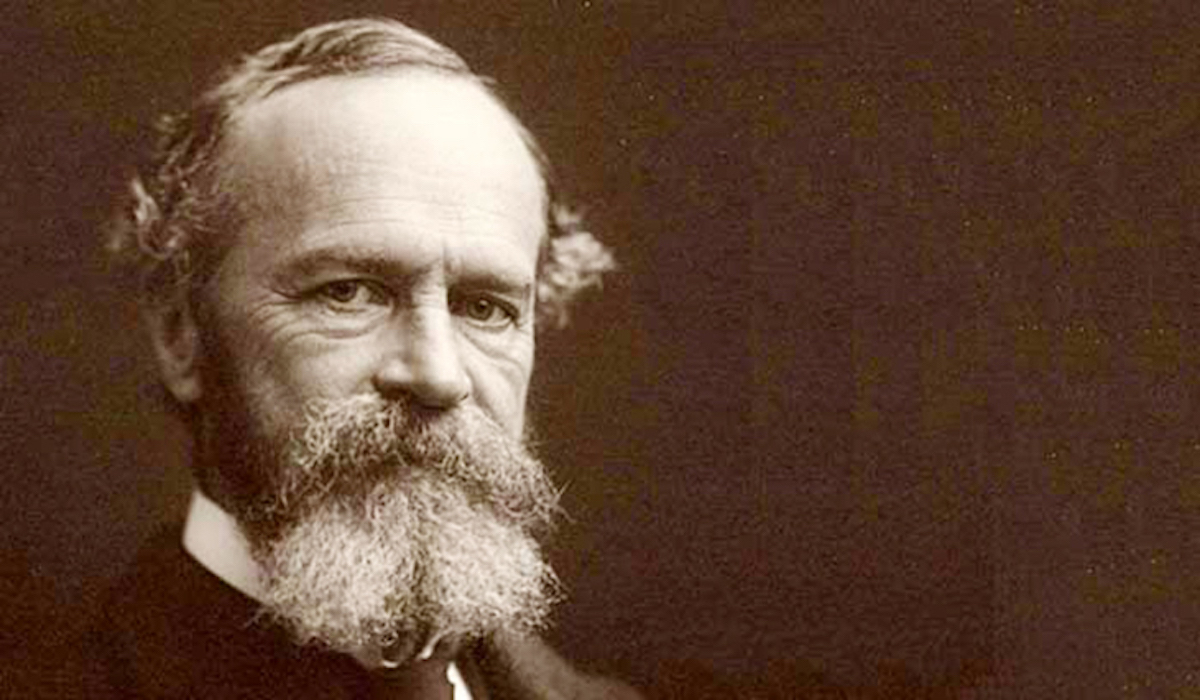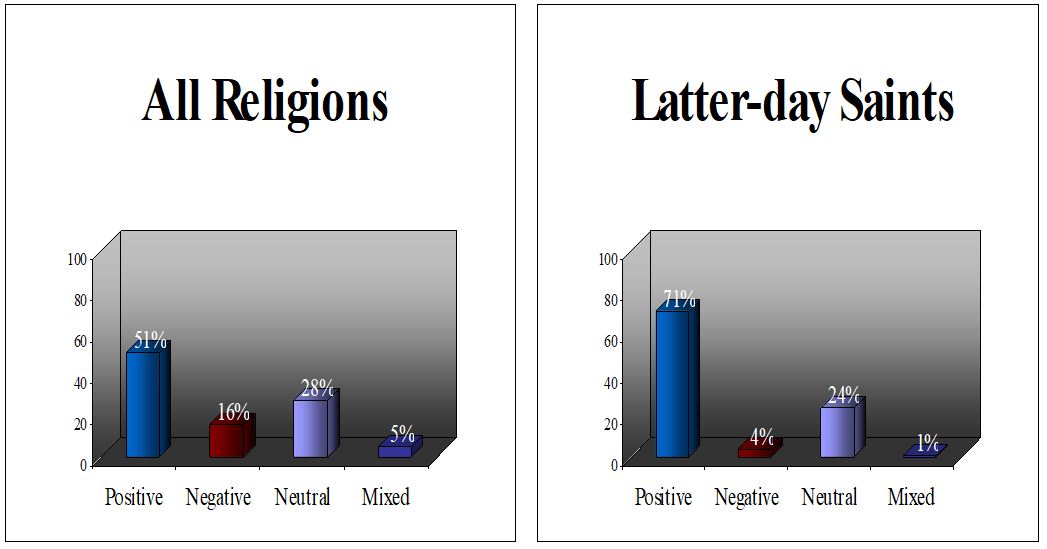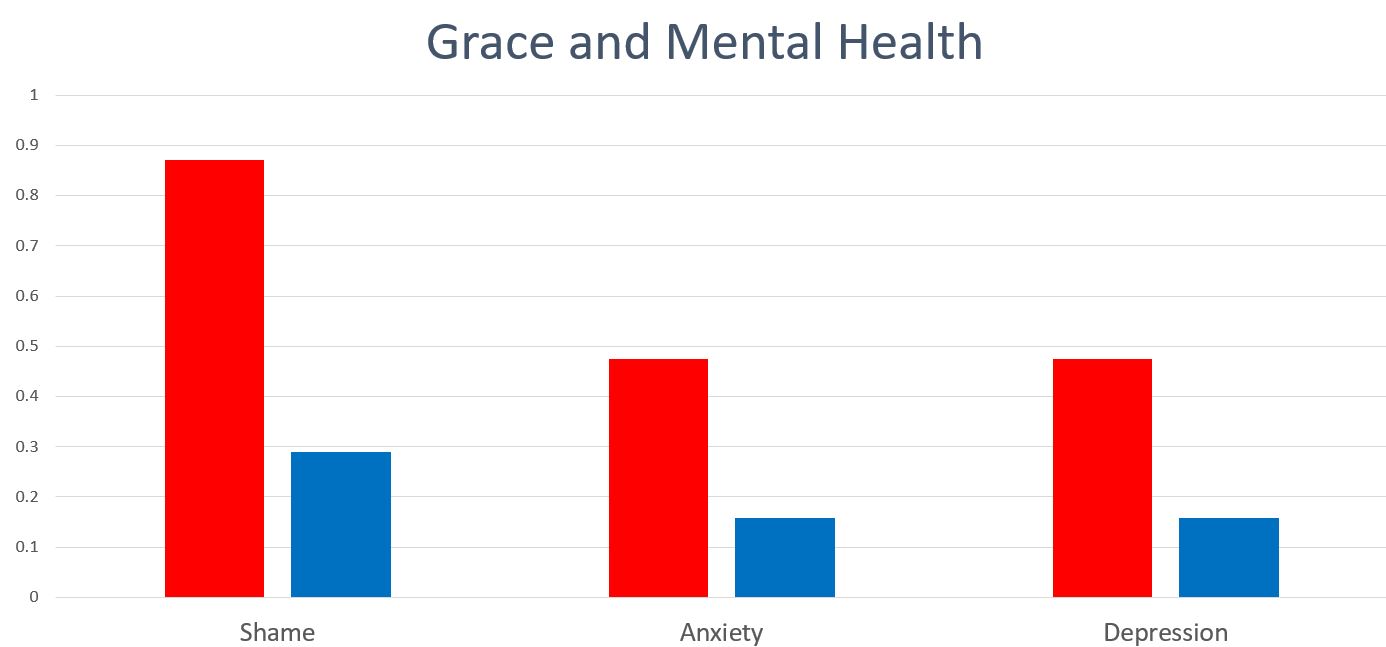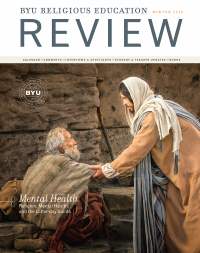The Relationship between Religion, Mental Health, and the Latter-day Saints
Daniel K Judd
Daniel K Judd (daniel_judd@byu.edu) was associate dean of Religious Education at BYU when this was published.
 Williams James. Wikimedia Commons.
Williams James. Wikimedia Commons.
The relationship of religion and mental health has long been a controversial issue in the social sciences, among mental health professionals, and between religious leaders and lay people alike. William James, an American academic, physician, and philosopher, championed the positive side of this debate when he concluded, “We and God have business with each other; and in opening ourselves to His influence our deepest destiny is fulfilled. The universe, and those parts of it which our personal being constitutes, takes a turn genuinely for the worse or the better in proportion as each one of us fulfills or evades God’s commands.”[1]
Sigmund Freud, founder of psychoanalytic theory and therapy, saw the relationship between religion and mental health very differently than William James. Freud’s description of religion as “the universal compulsive neurosis of humanity”[2] catalyzed a negative perception among many of the academics and clinicians of his day towards religious belief and practice that has continued to the present.[3] Dr. Albert Ellis, one of the founders of cognitive behavioral therapy, represents the attitude currently held by many academics and clinicians: “Religiosity is in many ways equivalent to irrational thinking and emotional disturbance. . . . The elegant therapeutic solution to emotional problems is to be quite unreligious. . . . The less religious they are, the more emotionally healthy they will be.”[4] Such statements by William James, Sigmund Freud, and Albert Ellis were a part of what motivated me at the beginning of my academic career to go beyond the theoretical and anecdotal to examine the research evidence concerning the relationships between religious belief and practice, and mental health.
The research I have done over the last thirty years includes studies on the mental health of most religions from the early part of the twentieth century to the present. While I have sifted through thousands of anecdotal essays, media reports, blog posts, religious discourses, and apologetic publications, I have spent most of my time in the academic journals and working with individuals and families in educational, clinical and pastoral settings. With few exceptions, my reviews of the academic research have produced little support for the assertions of Freud, Ellis, and others that religion facilitates mental illness. While the research also includes contradictions, exceptions, and ambiguities, the larger body of academic research supports the conclusion that religious belief, and most especially personal religious practice, facilitates mental health, marital cohesion, and family stability. These positive relationships between religion and mental health are found in the research that has been done on each of the religious traditions I have studied—Catholicism, Protestantism, Islam, Judaism, and other faiths including the Seventh-day Adventists, Jehovah’s Witnesses, Bahá’í, and Hare Krishna. Of the 540 studies that met the specific criteria for my initial study (1900–1995), 51 percent reported that religion was positively associated with mental health, 16 percent indicated a negative relationship, 28 percent were neutral, and 5 percent yielded mixed results.[5]
Research on Latter-day Saints
Outcomes Comparing All Religions to Latter-day Saints

As a Latter-day Saint, I have been interested to discover that the research outcomes from studies on members of The Church of Jesus Christ of Latter-day Saints is remarkably positive. Nearly two-thirds of the research outcomes (71 percent) pertaining to Latter-day Saint samples indicated a positive relationship, 4 percent negative, 24 percent neutral, and 1 percent mixed.[6]
Even though the research literature on Latter-day Saints and mental health includes some negative outcomes, the overall body of research from the early part of the twentieth century to the present supports the conclusion that Latter-day Saints who live their lives consistent with the teachings of their faith experience greater well-being, increased marital and family stability, less delinquency, less depression, less anxiety, less suicide, and less substance abuse than those who do not.[7] Professor Harold Koenig has reported similar results for other religious traditions: “Indeed, at least two-thirds of these studies report that [religious/
Beyond the Natural Senses
One of the challenges for those engaged in research, and for all who want to have confidance in the results, is what has come to be known as “confirmation bias,” which has been defined as the “search for evidence that will confirm their existing beliefs while also ignoring or downplaying disconfirming evidence.”[9] In other words, it is common for individuals and communities to tacitly, and sometimes explicitly, embrace the arguments of those who think the way they do and reject (and sometimes even demonize) those whose opinions are different than their own. During my initial review of the research I have mentioned thus far, the majority of the studies with negative outcomes came from the earlier part of the twentieth century. My inquiries into this anomaly led me to discover that some of the early psychological instruments used to measure mental health were biased against religious belief.
It is relatively easy for me as a believing Latter-day Saint to see the antireligious biases in the arguments made by individuals such as Freud and Ellis, but we must also be open to the reality of our own biases as well. Having an understanding “of things as they really are, and of things as they really will be” (Jacob 4:13) is difficult at best without an epistemology that includes but goes beyond mortal mind and method. Both science and religion offer a perspective by which truth can be identified, understood, and applied. While many religious leaders agree that there is revelatory “power beyond [the] natural senses,”[10] many of these same leaders also believe that science is an important means by which truth can be discovered. President Russell M. Nelson, President of the Church and a physician by training, recently stated: “There is no conflict between science and religion. Conflict only arises from an incomplete knowledge of either science or religion or both. . . . All truth is part of the gospel of Jesus Christ. Whether truth comes from a scientific laboratory or by revelation from the Lord, it is compatible.”[11]
Research and Revelation on Grace and Good Works
My own experience with allowing an “extra dislike of the one error to draw me gradually into the opposite one”[12] is one common to many young Latter-day Saint missionaries serving in the ninteenth and twentieth centuries. As a young missionary serving in Southern California from 1975 to 1977, I quickly learned that the message I was sharing about the relationship between the grace of God and the importance of personal obedience in the process of salvation was not popular with those who identified themselves as evangelical Christians. I quickly became weary of hearing many of these committed Christians quote the following words of the Apostle Paul in his Epistle to the Ephesians, “By grace are ye saved through faith; and that not of yourselves: it is a gift of God: not of works, lest any man should boast” (Ephesians 2:8–9). The more these individuals would speak of the grace of Christ from the writings of the Apostle Paul, the greater my desire became to quote the following from the Epistle of James: “Wilt thou know, O vain man, that faith without works is dead?” (James 2:20). Without being explicitly aware, my belief in the importance of good works was becoming a bias against grace.
Even though my attitude towards grace (and my evangelical associates) would soften in the years that followed, it wasn’t until I served as a mission president in grace-drenched West Africa and returned home and became immersed in the research on the relationship between the grace of God, legalism (doing good works for the wrong reasons), and mental health, that my bias against grace would be transformed into a more informed and hopefully inspired advocacy. As a new mission president, I began to notice that several of my hardest working and most fruitful missionaries were suffering with feelings of anxiety and depression. Some were even experiencing from what I knew from my clinical training to be what psychologists define as “scrupulosity,” which was being manifest as a compulsive need to confess even the smallest of transgressions that normally would have been something they could have resolved between themselves and God. During an interview with one of these missionaries, the following words from the writings of Martin Luther, the sixteenth-century Protestant reformer, came to mind. In the following statement, Luther describes his experiences in an Augustinian monastery during his training to become a priest that paralleled the experiences of my struggling missionaries: “When I was a monk, I made a great effort to live according to the requirements of the monastic rule. I made a practice of confessing and reciting all my sins, but always with prior contrition; I went to confession frequently, and I performed the assigned penances faithfully. Nevertheless, my conscience could never achieve certainty but was always in doubt and said: ‘You have not done this correctly. You were not contrite enough. You omitted this in your confession.’ Therefore, the longer I tried to heal my uncertain, weak, and troubled conscience with human traditions, the more uncertain, weak, and troubled I continually made it. In this way, by observing human traditions, I transgressed them even more; and by following the righteousness of the monastic order, I was never able to reach it.”[13]
Many elders and sisters could identify with what Luther described. Some of these same missionaries would eventually be helped by working with mental health professionals, but all were strengthened by learning how Luther’s eventual rediscovery of the grace of Jesus Christ, and the appropriate place of good works in the process of salvation, was made possible in the midst of his suffering.[14] President M. Russell Ballard, Acting President of the Quorum of the Twelve Apostles, described how this same confusion over the relationship between grace and works exists in the Church today: “No matter how hard we work, no matter how much we obey, no matter how many good things we do in this life, it would not be enough were it not for Jesus Christ and His loving grace. On our own we cannot earn the kingdom of God—no matter what we do. Unfortunately, there are some within the Church who have become so preoccupied with performing good works that they forget that those works—as good as they may be—are hollow unless they are accompanied by a complete dependence on Christ.”[15]
Motivated by the needs of the missionaries with whom I served, and being inspired by the teachings of Luther and the words of ancient and modern prophets, two of my colleagues and I designed what would become the first empirical research study ever done with Latter-day Saints on the relationship between their experiences with the grace of Christ, legalism, and mental health. This study is currently under academic review, but the following graph illustrates a sampling of the results reported in our study.

The red bars represent the higher prevalence of shame, anxiety, and depression in the lives of the individuals we studied who were more focused on works (legalism) than grace. The blue bars represent those who reported less shame, anxiety, and depression because of their experiences with God’s grace.
The data for our study, collected from 635 Latter-day Saints, support our theory that experiencing the grace of God would have a positive relationship with mental health and that an individual's legalistic beliefs would be correlated with decreased mental health because of the way these beliefs interfere with their ability to experience grace.[16] Our research also supports President Ballard’s comment referenced earlier that some Latter-day Saints become “so preoccupied with performing good works” that they forget the importance of having a “complete dependence on Christ.”
Conclusion
Brigham Young University is one of the few places on earth where a spiritually inspired and academically rigorous blend of revelation and research is possible. Those of us in Religious Education and the Religious Studies Center are working diligently to learn and to share the fruits of blending revelation and research, and are striving to do our part to contribute to this noble and inspired work. Elder Neal A. Maxwell of the Quorum of the Twelve Apostles described this process as follows: “Logic does not solo very well. It performs many tasks, but logic can be morally weightless. It is a blend of revelation, reason, and research that serves the kingdom well. Again and again, the men and women involved prove that the Spirit and scholarship can enhance each other.”[17]
Notes
[1] William James, The Varieties of Religious Experience (New York: Modern Library, 1902), 516–17.
[2] Sigmund Freud, The Future of an Illusion, trans. J. Strachey (New York: W. W. Norton, 1961), 55.
[3] José L. Duarte et al., “Political Diversity Will Improve Social Psychological Science,” Behavioral and Brain Sciences 3 (2014), https://
[4] Albert Ellis, “Psychotherapy and Atheistic Values: A Response to A. E. Bergin’s ‘Psychotherapy and Religious Values,’” Journal of Consulting and Clinical Psychology 48 (1980): 637.
[5] Daniel K Judd, “Appendix A: Religious Affiliation and Mental Health,” in Religion, Mental Health, and the Latter-day Saints, ed. Daniel K Judd (Provo, UT: Religious Studies Center, 1999), 257.
[6] Daniel K Judd, “Religiosity, Mental Health, and the Latter-day Saints: A Preliminary Review of Literature [1923–1995],” in Latter-day Saint Social Life: Social Research on the LDS Church and Its Members, ed. James T. Duke (Provo, UT: Religious Studies Center, 1997), 473–97.
[7] Judd, “Religiosity, Mental Health, and the Latter-day Saints,” 473.
[8] Harold Koenig, Dana King, and Verna B. Carson, Handbook of Religion and Health (New York: Oxford University Press, 2012), 600.
[9] Duarte et al., “Political Diversity Will Improve Social Psychological Science.”
[10] Gordon B. Hinckley, “The Cornerstones of Our Faith,” Ensign, November 1984, 50.
[11] Russell M. Nelson, as quoted in Marianne Holman Prescott, “Elder Nelson Dedicates Life Sciences Building: ‘There Is No Conflict between Science and Religion,’”
Deseret News, 14 April 2015, https://
[12] C. S. Lewis, Mere Christianity (New York: HarperOne, 2001), 186.
[13] Martin Luther, Luther’s Works, vol. 27: Lectures on Galatians, 1535, Chapters 5–6; 1519, Chapters 1–6, ed. J. J. Pelikan, H. C. Oswald, and H. T. Lehmann (Saint Louis: Concordia Publishing House, 1999), 13.
[14] Daniel K Judd, “Clinical and Pastoral Implications of the Ministry of Martin Luther and the Protestant Reformation,” Open Theology 2, no. 1 (2016): 324–37.
[15] M. Russell Ballard, “Building Bridges of Understanding,” Ensign, June 1998, 65.
[16] Daniel K Judd, W. Justin Dyer, and Justin B. Top, “Grace, Legalism, and Mental Health: Examining Direct and Mediating Relationships” (in review).
[17] Neal A. Maxwell, “Blending Research and Revelation” (remarks at the Brigham Young University President’s Leadership Council Meetings, 19 March 2004), 2; copy in author’s possession.
